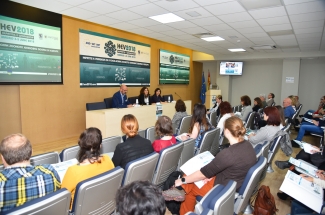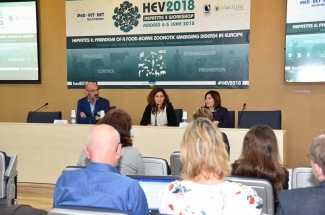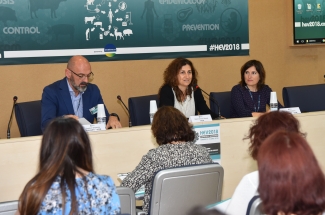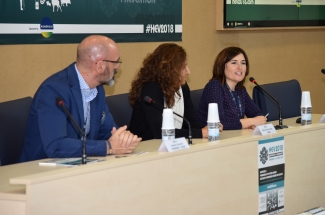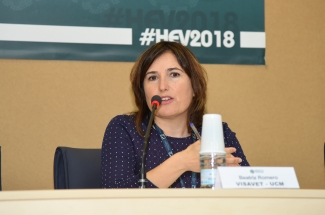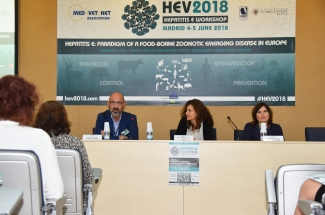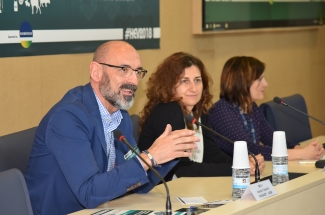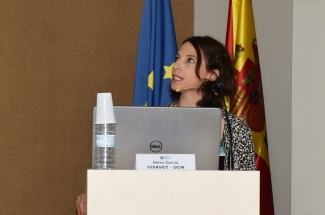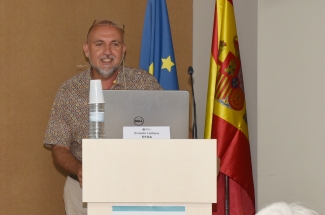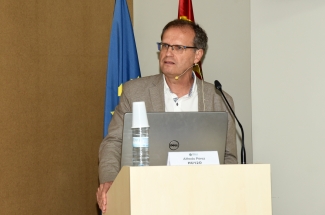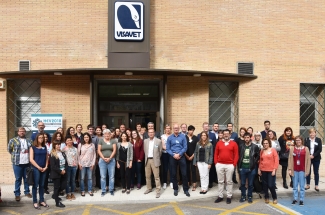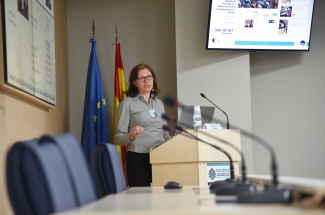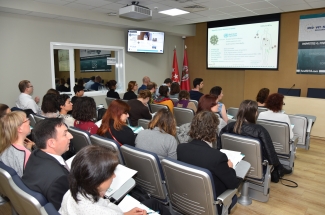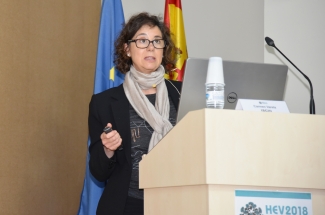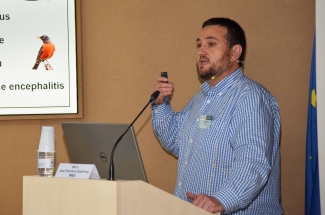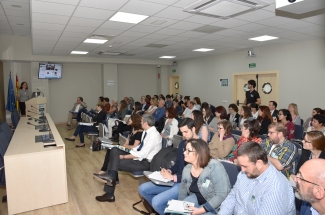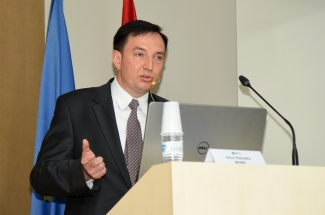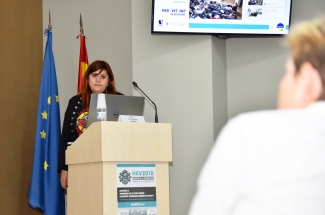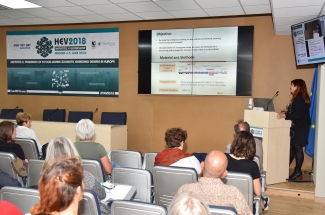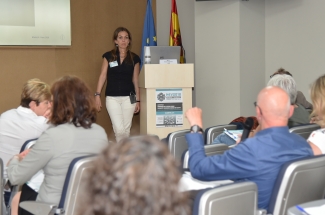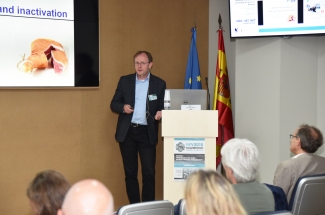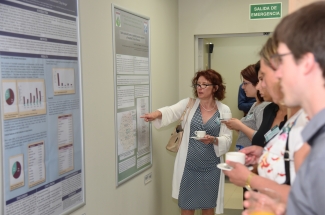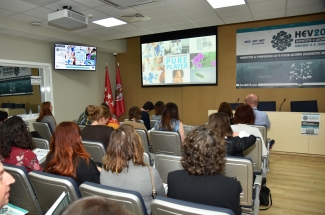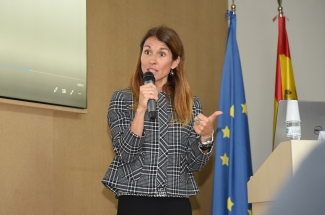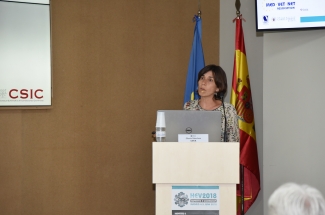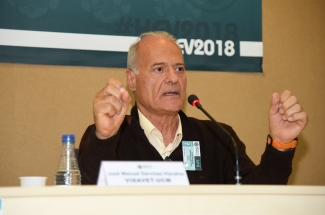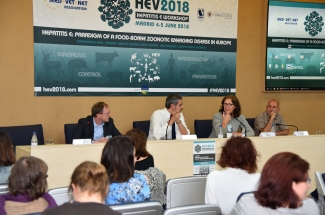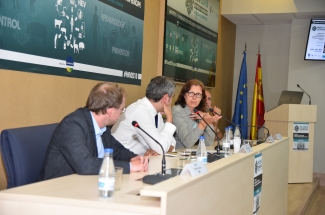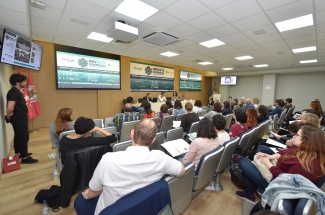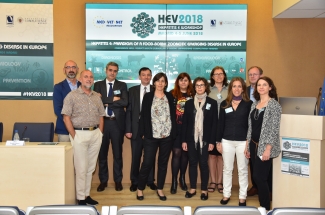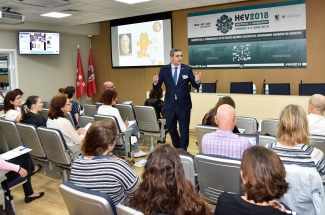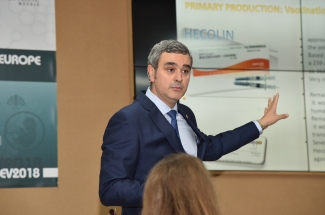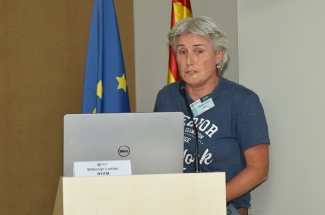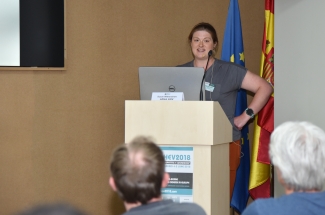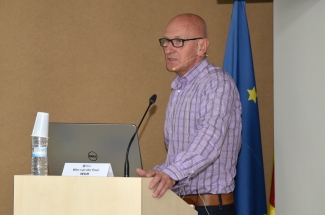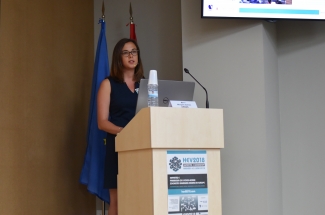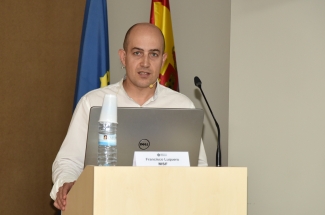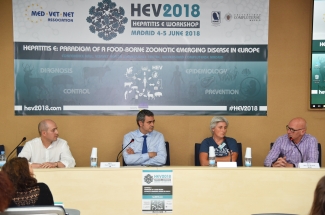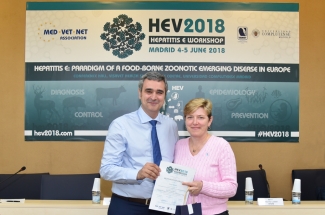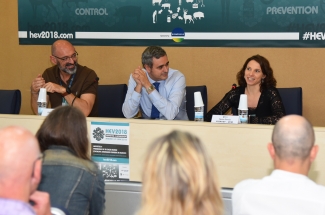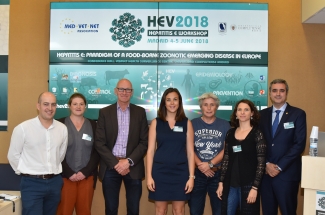HEV2018 Hepatitis E: Paradigm of a food-borne zoonotic emerging disease in Europe
Organizador:
VISAVET Health Surveillance Centre
Med-Vet-Net Association
Comité organizador:
VISAVET-UCM, Spain: Nerea García, Sergio González, Joaquín Goyache, Lucía de Juan Ferré
Universidad de Burgos, Spain: David Rodríguez-Lázaro
Patrocinador: bioMérieux
Lugar: Sala de Conferencias, Centro de Vigilancia Sanitaria Veterinaria (VISAVET), Madrid, Spain
Fecha: 4 y 5 de junio de 2018
Registro: http://www.hev2018.com (registro cerrado)
Resumen:
The VISAVET centre of Complutense University of Madrid organize a MedVetNet workshop focused on HEV by a One Health approach (see programme), connecting professionals from different expertise areas (clinicians, veterinarians, epidemiologists, food officers and policy makers) from different European countries.
The global workshop objective will be to share and update the knowledge about HEV at European level with the ultimate goal of establishing a hepatitis E consortium and a network in order to apply for European calls (Horizon 2020).
Hepatitis E virus (HEV) is an under-recognised cause of acute hepatitis in high-income countries. Originally considered to be restricted to humans, it is now clear that HEV and HEV-like viruses have several animal reservoirs with complex ecology and genetic diversity. Although there is a single serotype, four major HEV genotypes (1-4) capable of infecting humans are currently recognized. Genotype 3 predominates in high-income countries, including those in Europe. Transmission of this genotype is usually zoonotic and has been linked mainly to the consumption of pork products, but also to wild boar, deer or shellfish. EFSA has recently published a scientific report, which highlights a Europe-wide increase in cases and emphases the need for more research efforts on the epidemiology, diagnosis and control of HEV. Standardised case definitions and testing policies (including the development, harmonization and standardization of the detection methodology) would allow a better understanding of the epidemiology of HEV as an emerging cause of liver-related morbidity in Europe. Despite of major recent developments in the epidemiology, treatment, and prevention of hepatitis E, some other gaps in knowledge need to be addressed (effective HEV control in meat production chains, need of blood products screening, refinement of treatment paradigms of acute and chronic hepatitis E, etc.)
Presentaciones del Workshop:
Dr. Ernesto Liébana
Dr. Carmen Varela
Dr. Jose Francisco Ruiz-Fons
Dr. Artur Rzezutka
Dr. Ana Avellón
Dr. Reimar Johne
Dr. Gloria Sánchez
Dr. José Manuel Sánchez-Vizcaíno
Dr. David Rodríguez-Lázaro
Dr. Willemijn Lodder
Dr. Susan Withenshaw
Dr. Morgane Salines
Dr. Francisco Luquero


